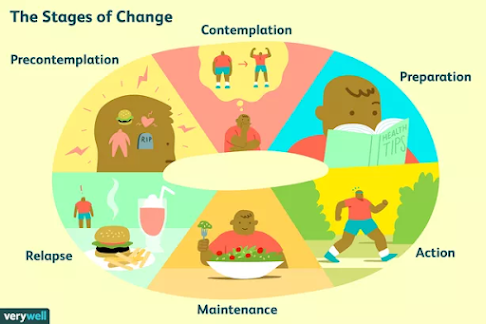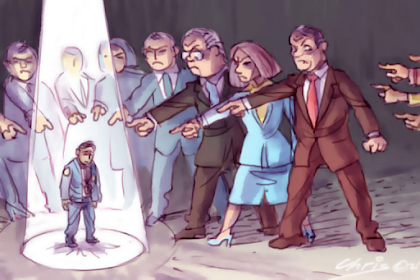A confluence of topics dealing with mental health, substance abuse, health, public health, Social Work, education, politics, the humanities, and spirituality at the micro, mezzo, and macro levels. In short, this blog is devoted to the improvement of the quality of life of human beings in the universe.
Wednesday, June 8, 2022
Tuesday, June 7, 2022
Texas ranks last in Mental Health Care Among U.S. States
Texas ranks last in mental health care among U.S. states https://t.co/d01tuG1x8U
— NPR Health News (@NPRHealth) June 4, 2022
Monday, June 6, 2022
Parents' unpredictable behavior may impair optimal brain circuit formation Disrupted development increases vulnerability to mental illness, substance abuse
Sunday, June 5, 2022
How teachers do or don't deal with traumatic events in their classrooms
From "Teachers often struggle to deal with mass traumatic events in class" by Jennifer Green, Jonathan Comer, and Melissa Holt, The Conversation June 2, 2022
Second, teachers want to know what to say. An April 2022 study found that only five states required future teachers to receive training in how to respond to trauma. Teachers expressed that they want training and guidance in how to discuss traumatic events with students, including how to open the conversation, how to respond to difficult questions, and how to support students throughout the discussion. For example, a fifth grade teacher wrote after the Boston Marathon attack: “Training! We have no training on this. We get emails from our superiors that tell us to address the events, with not much training on how to do it. I feel like I’m good at this type of thing – but not all teachers in my school are. … The result is that some kids get their needs met by their teacher and some don’t.”
For more click here
Saturday, June 4, 2022
The Stages of Change Model
There is a great article and brief video at the VeryWellMind web site describing what is called the Stages of Change Model.
There are six stages:
- Precontemplation
- Contemplation
- Preparation
- Action
- Maintenance
- Relapse
- Fuck you
- Maybe I do, Maybe I don't
- How could I?
- Let's do it.
- Used to
- Oh shit I messed up.
Friday, June 3, 2022
Most mass shooters are terrorists, not mentally ill.
From the Psychiatric Times, 05/31/22
There is a common misperception amplified by mainstream media and government officials that people “go crazy” or enter some altered state of consciousness and start shooting. Rather, executing murderous plots such as mass shootings at schools, grocery stores, places of worship, and public events requires a mind that is lucid and capable of producing rational thought, planning, and logical cognitive processing.
For more click here.
Thursday, June 2, 2022
Individual Action Can't Solve Social Problems
Martin Butler wrote an interesting article entitled, "Individual Action Can't Solve Social Problems" which appeared in 3quarksdaily.com on May 30, 2022.
Butler's main thesis is that individuals get blamed for their "choices" which has little to do with the existence of the problem. Another way of looking at this is that individual choices are heavily influenced and constrained by social factors. Ignoring the social factors which produce, contribute to, and sustain the individual behavior does little to diminish or eliminate the problem.
I have clients who tell me that people have blamed them for their suffering telling them that the suffering is the result of "bad choices." We like to believe in free will and personal choice but what is the system that decides what choices we have to begin with?
First, to diminish or eliminate social problems people need knowledge and yet they are often kept in the dark and sometimes lied to by the powers that be. Issues get framed as a choice between A and B without making the decider aware that there is also option C, D, and E.
Second, people need to skills. Without appropriate skills and tools and resources you cannot appropriately expect that people can implement a choice even if it is available to them.
Third, people need an opportunity to use their knowledge and skills or the knowledge and skill atrophy from lack of use.
People often come to therapy and they just don't know any better how to deal with the problems in their lives. They have never been made aware of the possibilities. Even if they are aware of the possibilities they don't know how to proceed, how to do what could be done. They need coaching and skill development. They then have to have the opportunity to practice what they have learned about and been coached to deal with.
It is gaslighting then people in power and authority blame individuals for problems as if they are under individual control when the system is rigged for their benefit. These situations create a mystification which is crazy making. What is needed is system change so that individual choices can be beneficial to both the individual and the society.
Problems cannot be solved at an intrapsychic level alone. They also must be approached from the interpersonal and social levels. A person seeking therapy would benefit from seeing a therapist who uses a systemic as well as individual point of view.



